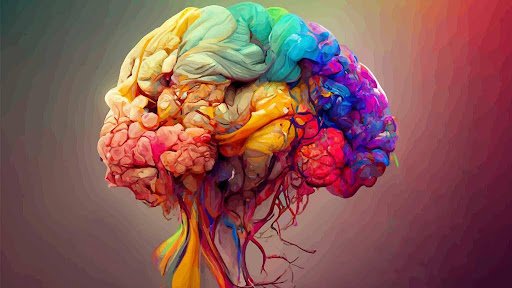In recent years, psychedelic-assisted therapy has gained traction as a promising approach to treating various mental health conditions. Two substances often at the forefront of this conversation are psilocybin and ketamine. While both show potential in addressing depression, anxiety, PTSD, and other psychiatric conditions, they are fundamentally different in their origins, mechanisms of action, legal status, and therapeutic applications.
This article explores the key differences and similarities between psilocybin vs ketamine, shedding light on their roles in mental health care and the importance of psilocybin education in a rapidly evolving field.
What is Psilocybin?
Psilocybin is a naturally occurring psychedelic compound found in certain species of mushrooms, often referred to as “magic mushrooms.” Once ingested, psilocybin is metabolized into psilocin, which interacts with serotonin receptors in the brain, particularly the 5-HT2A receptor. This interaction is responsible for the altered perception, mood changes, and deep introspective experiences commonly associated with psilocybin use.
Historically, psilocybin has been used in indigenous spiritual and healing practices, and modern science is now validating many of its therapeutic benefits.
What is Ketamine?
Ketamine, on the other hand, is a synthetic dissociative anesthetic developed in the 1960s. Originally used in medical and veterinary settings as an anesthetic, ketamine has found a new life in the field of psychiatry for its rapid-acting antidepressant effects.
Unlike psilocybin, ketamine works by modulating the glutamate system, particularly the NMDA receptor, which plays a crucial role in synaptic plasticity and mood regulation. Its fast onset and unique mechanism make it especially effective for treatment-resistant depression and suicidal ideation.
Psilocybin vs Ketamine: Key Differences
Mechanism of Action
- Psilocybin affects the serotonergic system, especially 5-HT2A receptors. It promotes a state of increased brain connectivity and neuroplasticity, often leading to profound emotional and spiritual insights.
- Ketamine acts on the glutamatergic system by blocking NMDA receptors and increasing levels of glutamate, which leads to rapid neural growth and repair.
Duration and Experience
- Psilocybin sessions typically last 4 to 6 hours, during which users may experience vivid visuals, emotional breakthroughs, and altered perception of self and time.
- Ketamine sessions are much shorter, lasting about 40 to 90 minutes, and the experience is often described as dissociative or out-of-body, rather than psychedelic in the traditional sense.
Therapeutic Use
- Psilocybin is currently being studied for depression, anxiety (especially in terminal illness), PTSD, addiction, and existential distress.
- Ketamine is FDA-approved for treatment-resistant depression (in the form of esketamine, a nasal spray), and is also used off-label for PTSD, bipolar depression, and suicidal ideation.
Legal Status
- Ketamine is a Schedule III drug in the U.S., legally available in clinical settings.
- Psilocybin is still classified as a Schedule I drug federally in the U.S., meaning it is illegal outside of clinical trials or certain decriminalized regions (e.g., Oregon, parts of Colorado).
The Rise of Psilocybin Therapy
The growing interest in psilocybin stems from compelling clinical trials showing its potential in treating various mental health disorders with long-lasting effects after just one or two doses. Unlike traditional antidepressants that must be taken daily, psilocybin therapy may offer enduring benefits with minimal doses.
A key part of this effectiveness lies in the guided therapeutic context—psilocybin is usually administered in controlled environments with trained facilitators or therapists. The goal is not just symptom relief, but transformation of deeply held thought patterns and traumas.
Ketamine Clinics and Rapid Relief
One of ketamine’s major advantages is its speed of action. Patients suffering from severe depression or suicidal thoughts often find relief within hours of a ketamine infusion. This has led to a surge in ketamine clinics across North America, offering IV, IM, or intranasal ketamine under medical supervision.
However, unlike psilocybin, ketamine’s effects are typically shorter-lived, requiring ongoing treatments to maintain benefits. Some critics also caution about the potential for abuse or dependency with frequent ketamine use.
Safety and Side Effects
Psilocybin
Psilocybin is generally considered safe in clinical settings, with low risk of addiction or toxicity. However, it can induce intense emotional or psychological reactions, especially without proper support. The most common side effects include nausea, anxiety during the experience, and occasional headaches afterward.
Ketamine
Ketamine is also safe when administered properly, but its dissociative nature and potential for abuse require careful oversight. Side effects may include dizziness, increased blood pressure, confusion, and nausea. Long-term or high-frequency use may affect bladder function or cognition.
The Importance of Psilocybin Education
As psychedelic therapy enters the mainstream, psilocybin education becomes critical—for both clinicians and the general public. Misunderstanding or misuse of these powerful substances can lead to unnecessary risks or missed therapeutic opportunities.
Key areas of psilocybin education include:
- Understanding dosage and different species of psilocybin mushrooms.
- Recognizing contraindications (e.g., for people with schizophrenia or bipolar disorder).
- Training therapists in psychedelic integration and support.
- Public policy education to guide decriminalization and therapeutic legalization efforts.
Numerous institutions now offer certificate programs in psychedelic therapy, with courses dedicated to psilocybin science, cultural context, and clinical application.
Future Outlook: Integration, Not Competition
The comparison of psilocybin vs ketamine should not be viewed as a competition, but rather as an exploration of complementary tools. Each substance offers unique strengths and caters to different patient needs and therapeutic goals.
Some therapists even envision a future where both ketamine and psilocybin are integrated into broader psychedelic-assisted psychotherapy frameworks, tailored to the individual rather than a one-size-fits-all approach.
As scientific understanding deepens and legal barriers begin to fall, the promise of these compounds lies not just in their pharmacology, but in how thoughtfully and ethically they are applied.
Conclusion
In the evolving landscape of mental health treatment, both psilocybin and ketamine represent significant breakthroughs. While psilocybin offers deep emotional and spiritual healing in longer, more introspective journeys, ketamine provides rapid relief and short-term stabilization in acute situations.
Understanding the differences between psilocybin vs ketamine is essential for clinicians, researchers, and anyone considering these treatments. Equally important is expanding access to psilocybin education, ensuring safe, informed, and equitable use of these powerful tools in healing.
As we continue to explore the frontiers of the mind, psilocybin and ketamine may very well redefine how we understand—and treat—mental suffering.









